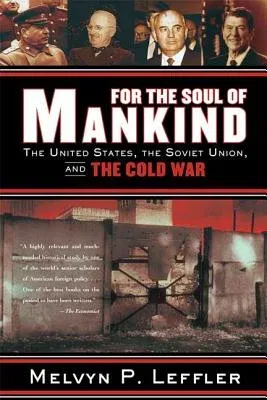To the amazement of the public, pundits, and even the policymakers
themselves, the ideological and political conflict that had endangered
the world for half a century came to an end in 1990. How did that
happen? What caused the cold war in the first place, and why did it last
as long as it did?
The distinguished historian Melvyn P. Leffler homes in on four crucial
episodes when American and Soviet leaders considered modulating,
avoiding, or ending hostilities and asks why they failed: Stalin and
Truman devising new policies after 1945; Malenkov and Eisenhower
exploring the chance for peace after Stalin's death in 1953; Kennedy,
Khrushchev, and LBJ trying to reduce tensions after the Cuban Missile
Crisis of 1962; and Brezhnev and Carter aiming to sustain détente after
the Helsinki Conference of 1975. All these leaders glimpsed
possibilities for peace, yet they allowed ideologies, political
pressures, the expectations of allies and clients, the dynamics of the
international system, and their own fearful memories to trap them in a
cycle of hostility that seemed to have no end.
For the Soul of Mankind illuminates how Reagan, Bush, and, above all,
Gorbachev finally extricated themselves from the policies and mind-sets
that had imprisoned their predecessors, and were able to reconfigure
Soviet-American relations after decades of confrontation.

